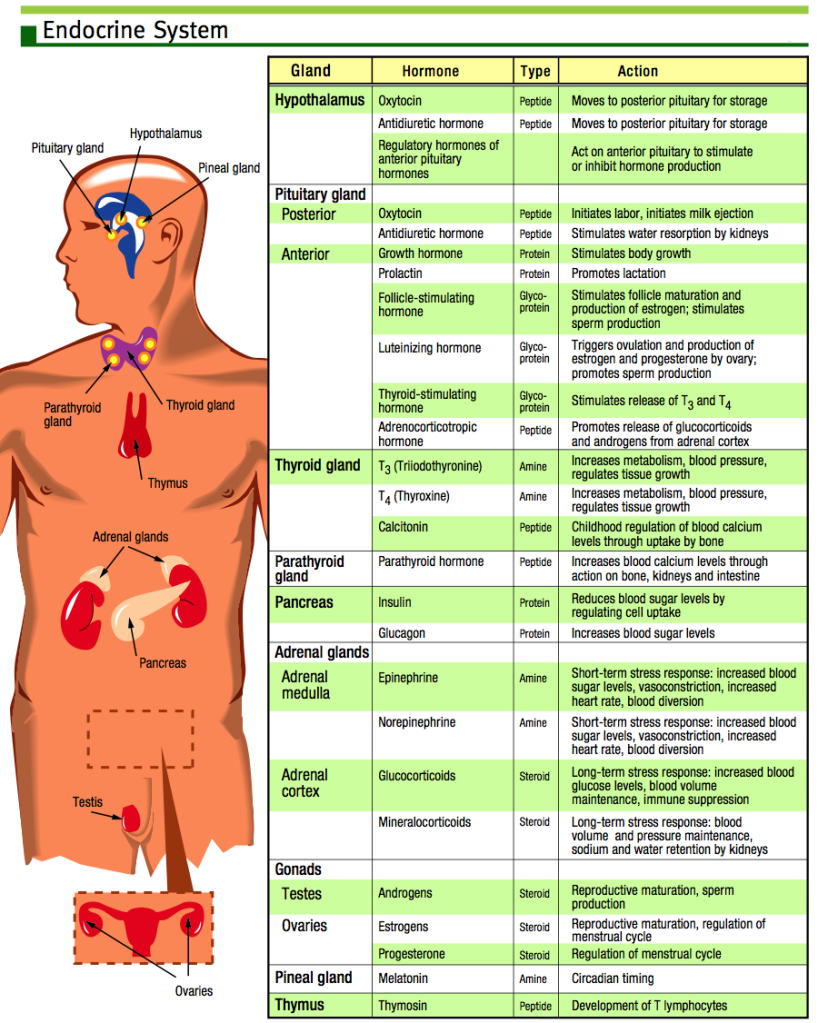Endocrine System Study Guide for NCLEX
The endocrine system is a network of glands that produce and release hormones into the bloodstream. Hormones are chemical messengers that travel throughout the body and regulate a wide range of bodily functions, including:
Growth and development
Metabolism
Reproduction
Mood and sleep
Stress response
Immunity
Major Endocrine Glands
The major endocrine glands include:
Pituitary gland: Located at the base of the brain, the pituitary gland is often called the “master gland” because it secretes hormones that regulate the function of other endocrine glands.
Thyroid gland: Located in the neck, the thyroid gland produces hormones that control metabolism, growth, and development.
Parathyroid glands: Located behind the thyroid gland, the parathyroid glands produce hormones that regulate calcium levels in the blood.
Adrenal glands: Located above the kidneys, the adrenal glands produce hormones that help the body respond to stress and regulate blood pressure.
Pancreas: Located behind the stomach, the pancreas produces hormones that regulate blood sugar levels.
Ovaries (females) and testes (males): These glands produce sex hormones that regulate sexual development and function.
Endocrine Hormones
Some of the most important endocrine hormones include:
Insulin: Insulin helps the body regulate blood sugar levels.
Glucagon: Glucagon has the opposite effect of insulin, causing blood sugar levels to rise.
Thyroid hormones: Thyroid hormones regulate metabolism, growth, and development.
Parathyroid hormone: Parathyroid hormone regulates calcium levels in the blood.
Cortisol: Cortisol is a stress hormone that helps the body respond to stressful situations.
Estrogen and testosterone: These sex hormones regulate sexual development and function.
Here are some examples of NCLEX-style questions about the endocrine system:
A patient presents with symptoms of polyuria, polydipsia, and polyphagia. What is the most likely diagnosis?
A patient is being treated for Cushing’s syndrome. Which medication is most likely to be prescribed?
A patient is being treated for diabetes with insulin. The patient is experiencing hypoglycemia. What should the nurse do?
A patient is being treated for hyperparathyroidism. Which diagnostic test is most likely to be ordered?
A patient is being treated for Addison’s disease. The patient is experiencing a stress response. What should the nurse do?
By studying the major endocrine glands and hormones, common endocrine disorders, and the nursing implications of endocrine disorders, you can increase your chances of success on the NCLEX exam.

How can I get a copy of these study guides to print out?
I would benefit greatly from these charts in my Med-Surg 2 class this fall. I would greatly appreciate a response or a link to be able to access these charts.
Thank you for your time,
Morgan Brooks